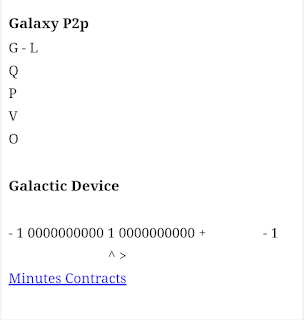The concept of a quantum engine typically refers to a device that utilizes principles of quantum mechanics to perform work or generate energy in a way that classical thermodynamics engines cannot. When applying this concept to the idea of creating a micro black hole with a 3 GW laser, we can explore how quantum mechanics might influence the process, but it's important to first understand what a quantum engine is and how it could theoretically be applied.
Quantum Engines: Basics
Quantum engines operate based on quantum phenomena such as superposition, entanglement, and quantum tunneling. Unlike classical engines, which follow classical thermodynamics and rely on the movement of particles or fluids to perform work, quantum engines exploit quantum states to perform tasks more efficiently or in fundamentally different ways. Some examples of quantum engines include:
Quantum heat engines: These use quantum systems as working fluids, harnessing quantum coherence to extract energy from heat.
Quantum refrigerators: Devices that use quantum principles to cool down a system by manipulating quantum states.
Quantum batteries: Hypothetical devices that store energy at the quantum level and could potentially outperform classical batteries in terms of energy density or charge/discharge efficiency.
Quantum Engine in the Context of Creating a Micro Black Hole
1. Energy Focusing: In the context of attempting to create a micro black hole with a 3 GW laser, a quantum engine could potentially help by utilizing quantum effects to focus and manipulate the energy in ways not possible with classical lasers. For example, quantum coherence or entanglement could theoretically allow for much more efficient use of energy, concentrating the laser's energy into a very small space in a way that classical means might not be able to.
2. Quantum Gravity and Black Holes: In theoretical physics, quantum gravity is a field of study aimed at understanding the gravitational force at quantum scales. If we could harness principles of quantum gravity through a quantum engine, it might allow for more precise control over the spacetime fabric. This could make the creation of a micro black hole more feasible, as it would combine high-energy quantum phenomena with the curvature of spacetime that results in black hole formation.
3. Hawking Radiation and Stability: A quantum engine could also play a role in controlling the stability of a micro black hole once it's created. According to Hawking radiation, black holes emit radiation and gradually lose mass over time, causing them to evaporate. In theory, a quantum engine might help counteract this process, perhaps by harnessing or manipulating the energy emitted, though this is highly speculative and untested.
4. Quantum Field Theory: Using quantum field theory, which deals with how quantum fields interact and can be manipulated, it might be possible to achieve an energy concentration on a level where a micro black hole could form. A quantum engine could potentially take advantage of these field interactions to generate the necessary conditions for black hole formation, though this would require entirely new technologies that can control quantum fields with extreme precision.
Current Limitations
Energy Scales: Even with quantum effects, the energy required to create a black hole remains far beyond current technological capabilities. The amount of energy needed for a macroscopic black hole is enormous (on the order of GeV), and even focusing 3 GW of energy through quantum means might not reach the necessary threshold.
Quantum Gravity: Quantum gravity remains an unsolved theory. Until a unified theory of quantum gravity is developed, we cannot fully predict how quantum mechanics and gravity can be combined to create or control black holes.
Technological Constraints: Current technology isn't advanced enough to harness or apply quantum effects at the energy scales necessary for black hole creation, and even if it were, such a process would be incredibly dangerous, with no clear way to control or contain a micro black hole.
Conclusion
While the idea of using a quantum engine to create or manipulate a micro black hole is intriguing, it remains speculative at best. The combination of quantum mechanics and black hole physics could lead to new insights into the nature of gravity and energy, but as of now, creating black holes with lasers or quantum devices is far beyond our technological and theoretical capabilities. Future advancements in quantum physics, quantum gravity, and energy manipulation could eventually open up new possibilities, but these concepts are still very much in the realm of theoretical physics.









0 Comments